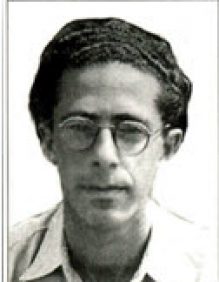As of 1942 Joseph gave assistance to Jewish refugees who fled from Slovakia to Hungary. The geographical location of Érsekújvár, about twelve kilometres from the border on the Hungarian side, put him and his comrades in a central position in the “slipping across the border” operation. Sometimes the refugees had to stay for a day or two in the town so they needed accommodation and all their needs had to be taken care of until they resumed their journey. The local Jewish community disapproved of this rescue operation out of fear of the authorities. Joseph was caught by the police, beaten, warned not to continue his activity and released. At the end of 1943 Joseph was sent to the town of Kolozsvár (Cluj) where he stayed for four months. During his stay there he opened the “Hashomer Hatzair” ken which had about thirty members. On 20.3.1944, one day after the Germans invaded Hungary, he was warned by an emissary from Budapest not to do any overt activity for the movement. Joseph decided to return to his parents in his hometown and he stayed there for a few weeks. He saw his parents being taken to the ghetto from which they were sent to an extermination camp. Joseph was enlisted in a forced labor unit but shortly afterwards he escaped with the help of an emissary of the movement who appeared in the camp with forged documents and money. Joseph arrived at the “Glass House” in Budapest where Rafi Friedl (Benshalom) met him. Already the day after he arrived in Budapest he received suitable papers and money from Moshe Pil (Alpan) who accompanied him to the railway station on his way to Nagyvárad (Oradea) on the Romanian border. Ten members of the movement, among whom Joseph, crossed the border and arrived in Bucharest. Joseph stayed there for three months until he made aliya in October 1944. He joined Kibbutz Ein Dor, the 6th Eretz-Israeli kibbutz.


